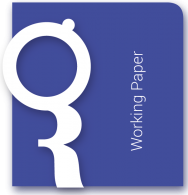
| Author(s) |
Joëlle TOLEDANO |
| Publication type | Working paper |
| Reference | GovReg Working Paper series | Issue 2017/03 |
Initially confined to a core of activities representing one-twentieth of GDP (microelectronics, IT and communications products and services), 'digital' is now penetrating and reshaping all economic activities. The spread of new digital services is challenging traditional business models. All activities are affected, from advertising and the media to all forms of transport, energy, financial services, tourism, agriculture and health services, not forgetting government services such as tax collection and the dematerialisation of all administrative procedures. By creating direct connections, eliminating or bypassing the economic intermediaries of the old business models, software platforms are reducing transaction costs, often drastically, and giving rise to new economic models everywhere.
The result is a steady stream of new questions about the public policies that need to be implemented to encourage and, in some cases, control the spread of digital technologies. There is an apparent consensus in favour of defining limited regulatory frameworks that do not hinder or even encourage growth, but whose methods must be credible. Certain practices - questionable but persistent - whether economic, fiscal, social or ethical, end up delegitimising the objectives pursued.
The aim of this note is to examine the relevance of the current approach, the methods and resources used to achieve the objective, and to conclude with complementary or alternative solutions that are more in tune with an agile digital world and which public policies have difficulty assessing.























